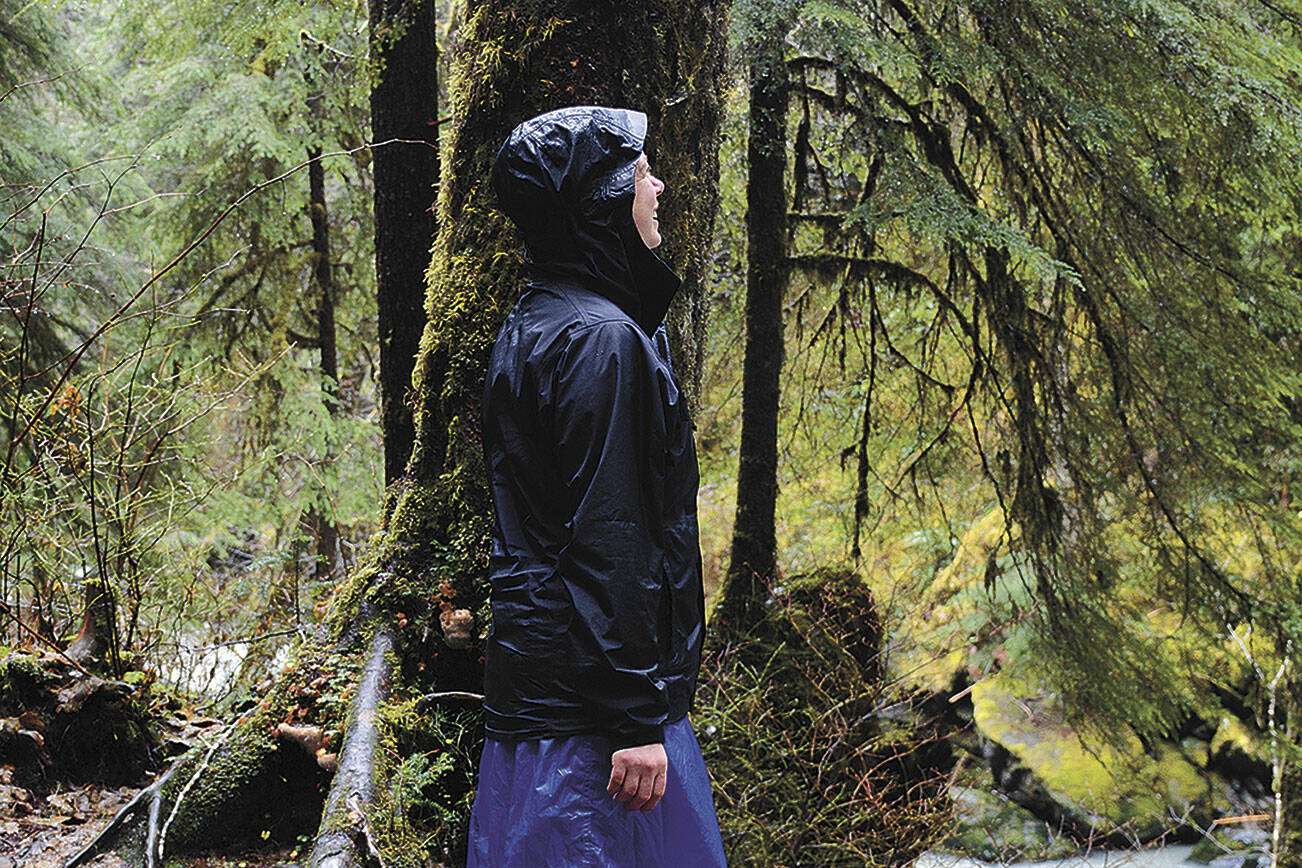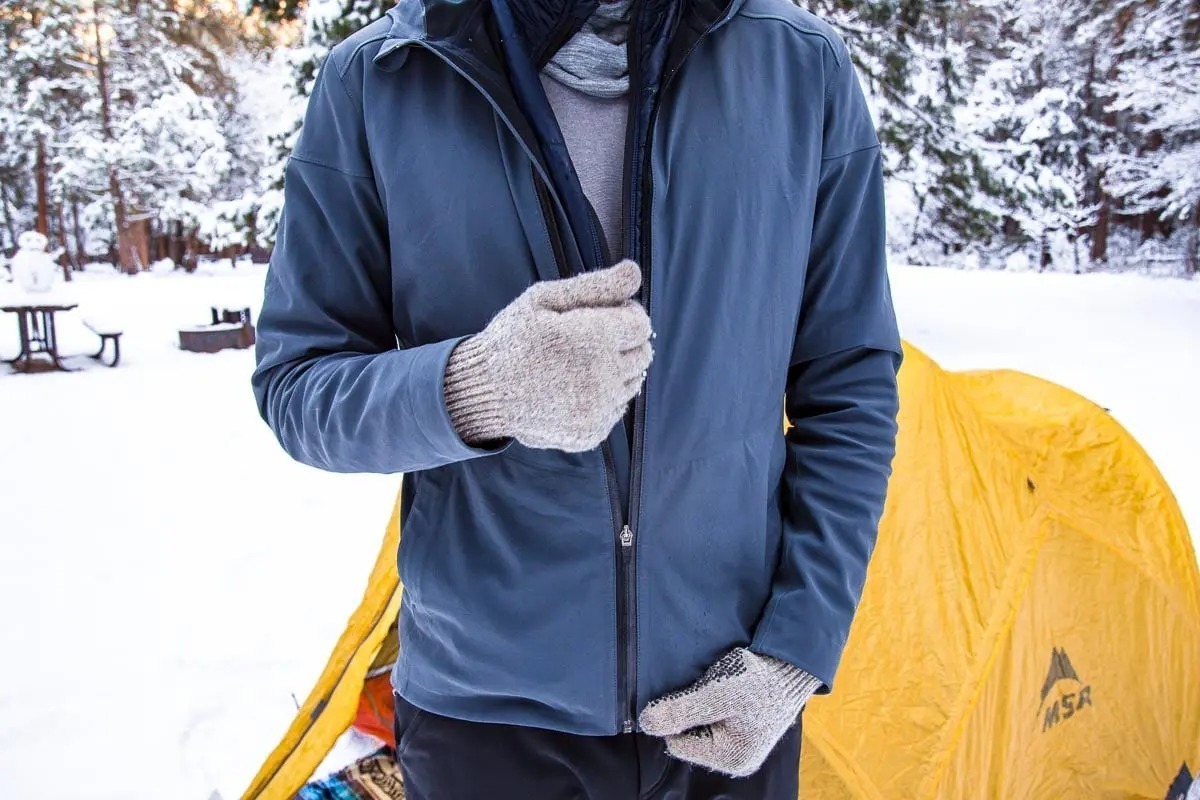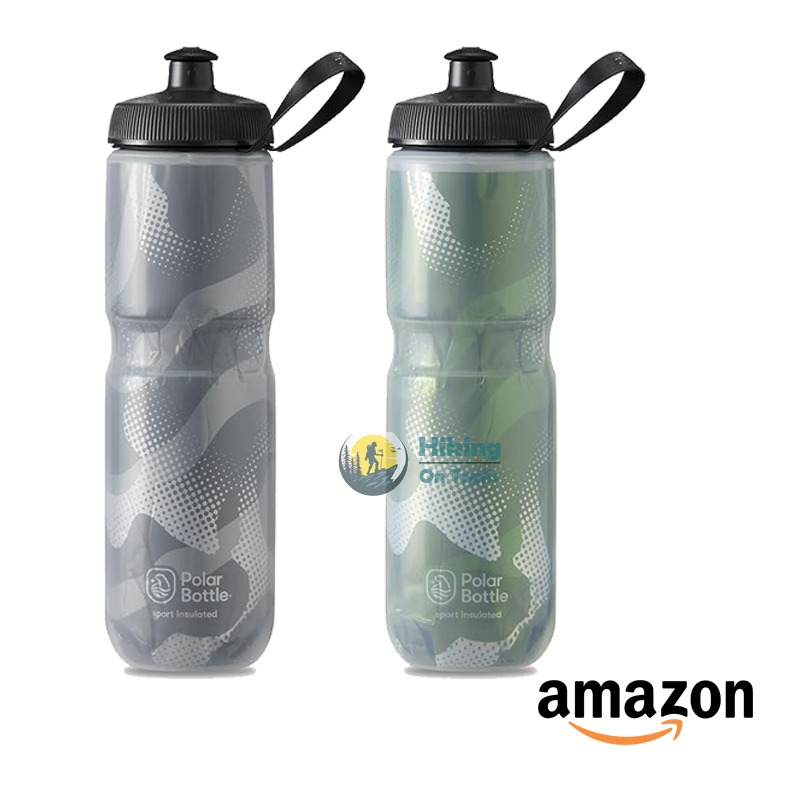
- January 2, 2025

- Home
- Hiking Tips
- Rainy Day Adventure: Your Ulti ...
To hiking in wet weather, wear waterproof clothing and footwear to stay dry and comfortable. Plan a shorter route and bring a rain cover for your backpack to keep gear dry.
Jump to a Section
ToggleHiking in the Rain for an Adventure Like No Other!
Hiking in the wet weather can be a unique and invigorating experience for outdoor enthusiasts. While the idea of trekking through wet conditions may seem daunting, with the right preparation and gear, it can be a rewarding adventure. In this guide, we will explore essential tips and tricks for hiking in the rain, from selecting the appropriate clothing and footwear to planning your route and staying safe on the trail.
By following these steps, you can make the most of a rainy day and enjoy the beauty of nature in a different light. So, lace up your hiking boots, embrace the raindrops, and embark on a memorable wet-weather trek!
Preparation
If you’re planning to go hiking in the rain, adequate preparation is key to ensure a safe and enjoyable outdoor experience. To make the most of your rainy day adventure, follow these essential tips for getting ready before hitting the trails.

Check The Weather Forecast
- Ensure to check the weather forecast before you head out.
- Look for signs of potential thunderstorms or severe weather.
- Be aware of any flash flood warnings in the area.
Pack Appropriate Gear
- Invest in a quality waterproof jacket and pants.

- Carry extra dry clothes in a waterproof pack.
- Bring a lightweight and compact umbrella or a poncho.
Clothing
When it comes to hiking in the rain, having the right clothing is crucial to staying comfortable and safe. Let’s break down the essential pieces you need to consider for your rainy day adventure.
Waterproof Outer Layer
Your outer layer should be waterproof to keep you dry and protected from the elements. Look for a high-quality rain jacket and pants that are both breathable and waterproof.
Quick-drying Clothing
Choose quick-drying materials for your base layers to wick away moisture and keep you warm. Opt for synthetic fabrics like nylon or polyester over cotton, which tends to retain water.
Footwear
Footwear plays a crucial role when hiking in the rain, as it’s essential to keep your feet dry and comfortable. Choosing the right footwear can make a significant difference in your hiking experience.
Waterproof Boots
Investing in a quality pair of waterproof boots is paramount for hiking in the rain. These boots are designed to keep water out while allowing your feet to breathe, ensuring you stay dry and comfortable throughout your hike. Look for boots with sturdy soles and ankle support to provide stability on wet and slippery terrain.
Gaiters
Gaiters are another essential piece of gear for hiking in the rain. These protective coverings wrap around your lower legs and the tops of your boots, providing an extra layer of defense against water, mud, and debris. Gaiters help keep your feet and lower legs dry and reduce the risk of discomfort and blisters caused by moisture seeping into your boots.
Hiking Essentials
When it comes to hiking in the rain, having the right gear is crucial. The right equipment can make all the difference between a miserable experience and an enjoyable adventure. One of the most important aspects of hiking in wet weather is ensuring that your belongings stay dry and protected. In this section, we will discuss the essential items you need to have in order to keep your gear safe and secure.
Waterproof Backpack:
Investing in a waterproof backpack is a must when hiking in the rain. A quality waterproof backpack will prevent water from seeping into your belongings, keeping them dry and protected. Look for backpacks made from durable and waterproof materials, such as nylon or polyester, with sealed seams to ensure maximum water resistance.
Rain Cover For Backpack:
In addition to a waterproof backpack, consider purchasing a rain cover specifically designed for backpacks. These covers are generally made from waterproof materials and are designed to fit snugly over your backpack, providing an extra layer of protection against rain and moisture. They are easy to pack and lightweight, making them a convenient addition to your hiking essentials.
Dry Bags:
Another must-have item for hiking in the rain is a set of dry bags. These bags are designed to keep your belongings completely dry, even in the wettest conditions. They come in various sizes and are made from waterproof materials, such as PVC or nylon. Use dry bags to store your clothes, electronics, food, and any other items that need to stay dry. They are easy to use and provide an extra layer of protection for your gear.
By investing in a waterproof backpack, rain cover for backpack, and dry bags, you can ensure that your belongings stay dry and protected throughout your rainy hiking adventures. These essential items will give you the peace of mind you need to fully enjoy the beauty of nature, no matter the weather.
Trail Considerations
Planning a hike in the rain requires extra preparation. Choose waterproof gear, wear appropriate clothing, and pack essentials. Check the weather forecast and trail conditions before setting out. Keep safety in mind and be mindful of slippery and muddy terrain.
Trail Considerations When it comes to hiking in the rain, trail considerations play a crucial role in ensuring your safety and enjoyment.
While it’s true that rain can add an extra level of challenge and excitement to your hiking experience, it also comes with its own set of considerations that need to be taken into account.
In this section, we will explore two important trail considerations that are essential for a successful and safe rain hike.
Be Mindful of Slippery Surfaces One of the first things to keep in mind when hiking in the rain is the increased risk of slippery surfaces. The rain can make rocks, tree roots, and even grassy areas treacherous and slippery.
Therefore, it is essential to be mindful of your steps and take extra caution to avoid slipping and falling. To navigate slippery surfaces effectively, here are a few tips to keep in mind:
1. Wear appropriate footwear: Opt for hiking boots or shoes with good traction to reduce the risk of slipping on wet surfaces. Make sure your footwear fits properly to provide stability.
2. Slow down your pace: Reduce your speed and take shorter strides to maintain better balance and stability. This will help prevent any sudden slips or slides on the trail.
3. Utilize trekking poles: Using trekking poles can provide additional stability and support, especially on steep or uneven terrain. These poles can help distribute your weight and provide extra grip on slippery surfaces.
Adjusting Pace for Conditions Another important consideration when hiking in the rain is adjusting your pace to match the conditions. Rainy weather can make trails muddier, slower to traverse, and may even obscure trail markers or signs.
Therefore, it’s crucial to adapt your hiking pace accordingly. Here are some tips for adjusting your pace in rainy conditions:
1. Take smaller breaks: While it’s important to stay hydrated and rested during your hike, taking shorter breaks can help you stay warm and maintain your momentum. Find sheltered spots to rest and refuel without exposing yourself to the rain for too long.
2. Plan for extra time: Rainy conditions may slow down your overall pace, so make sure to add some extra time to your itinerary. This will allow you to hike at a comfortable pace, without feeling rushed or pressured by time constraints.
3. Stay alert and observant: Poor visibility due to rain can make it harder to spot trail markers or changes in the terrain. Stay vigilant and pay close attention to any signs or markings along the trail to ensure you stay on the right path.
By being mindful of slippery surfaces and adjusting your pace for the conditions, you can confidently embark on a rain hike. These trail considerations will help you navigate the challenges of hiking in the rain and enhance your overall experience in the great outdoors. So, grab your rain gear, plan your route, and embrace the adventure of hiking in the rain!
Safety Tips
When heading out for a hike in the rain, safety should be your top priority. Hiking in wet conditions presents its own set of challenges, but with the right precautions, you can still enjoy the great outdoors. Here are some essential safety tips to keep in mind:
Stay Hydrated
Despite the cooler temperatures and damp conditions, it’s still crucial to drink plenty of water while hiking in the rain. The body can still become dehydrated, especially if you’re exerting yourself and sweating beneath your rain gear. Be sure to bring a reusable water bottle or hydration pack and take regular sips even if you don’t feel thirsty.
Watch For Hypothermia Signs
Rain and wind can quickly lower your body temperature, leading to hypothermia. Watch for symptoms such as shivering, numbness, drowsiness, and confusion. It’s important to dress in layers, including a moisture-wicking base layer, insulating mid-layers, and a waterproof outer shell. Also, bring extra clothing in your backpack in case you need to change out of wet garments.
Managing Wet Gear
When hiking in the rain, it’s crucial to know how to manage your wet gear to keep yourself comfortable and safe. This involves properly drying your gear after the hike, as well as cleaning and waterproofing it for future adventures.
Properly Drying Gear After Hike
- Hang wet clothing in a well-ventilated area.
- Avoid direct sunlight to prevent damage.
- Use a dry towel to remove excess moisture.
- Open up backpacks and tents to air dry completely.
Cleaning And Waterproofing
- Gently clean dirt and mud off gear with a soft brush.
- Use a specialized cleaner for waterproof gear.
- Reapply waterproofing spray after cleaning.
- Ensure zippers are clean and functioning properly.
By following these steps, you can effectively manage your wet gear and prolong its lifespan for many more rainy hikes to come.
Notable Advantages
Discover the remarkable benefits of hiking in the rain, from experiencing peaceful solitude on the trails to encountering breathtaking and vibrant landscapes. Embrace the adventure and challenge of hiking in wet conditions for a unique and rewarding outdoor experience.
Fewer Crowds
Hiking in the rain often means fewer people on the trails.
- Enjoy peaceful surroundings without the usual crowds.
- Take in the tranquility of nature without distractions.
Spectacular Scenery
Rain can enhance the beauty of the landscape during hikes.
- Witness vibrant colors and enhanced greenery in the rain.
- Experience misty mountains and dramatic clouds for unique views.
Frequently Asked Questions On How To Go Hiking In The Rain
How Should I Dress For Walking In The Rain?
To dress for walking in the rain, wear a waterproof jacket and pants, and choose waterproof shoes or boots. Opt for moisture-wicking layers underneath to stay dry. Don’t forget a hat and a compact umbrella.
Is It Ok To Go Hiking In The Rain?
Hiking in the rain is okay as long as you’re prepared. Wear waterproof clothing and shoes, and bring extra gear. Check the weather forecast and choose a safe trail. Be cautious of slippery terrain and potential hazards. It can be a unique and refreshing experience!
What Shoes To Wear Hiking In The Rain?
For hiking in the rain, wear waterproof hiking shoes with good traction to prevent slipping and keep your feet dry.
What Is The Water Rule For Hiking?
Stay hydrated by drinking 1 liter of water per two hours of hiking. Carry a water filter or purification tablets. Drink before you feel thirsty. Know water sources along the trail. Pack extra water just in case.
Conclusion
To conclude, hiking in the rain can be a rewarding experience if you’re well-prepared. From packing the right gear to checking the weather forecast, it’s essential to plan ahead. Embracing the elements and staying safe are key to enjoying a rainy hike.
So, don’t let a little drizzle dampen your adventurous spirit!
Search
Recent Post
Mid Cut Vs Low Cut Vs High
- March 19, 2024
- 4 min read
Best Hikes Salt Lake City Utah :
- March 18, 2024
- 3 min read
How Many Hiking Trails in Breckenridge :
- March 5, 2024
- 12 min read












